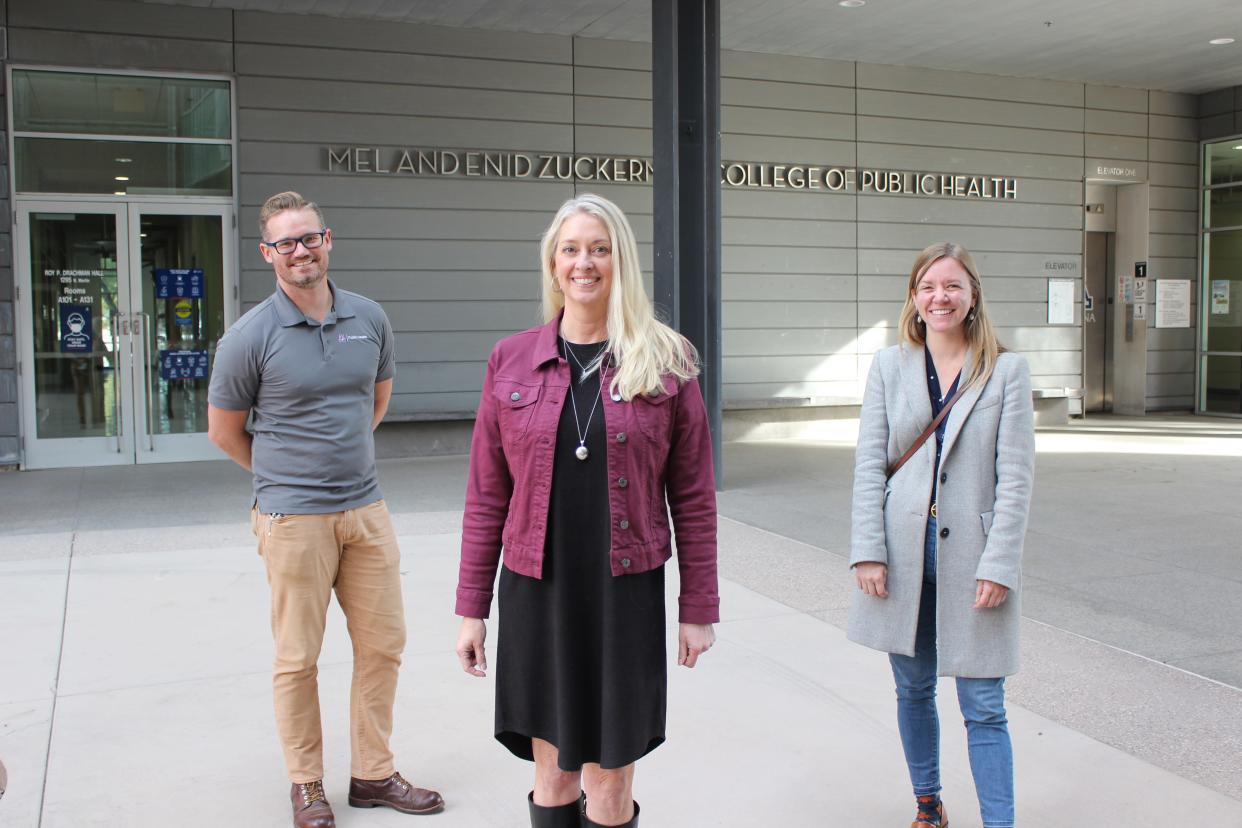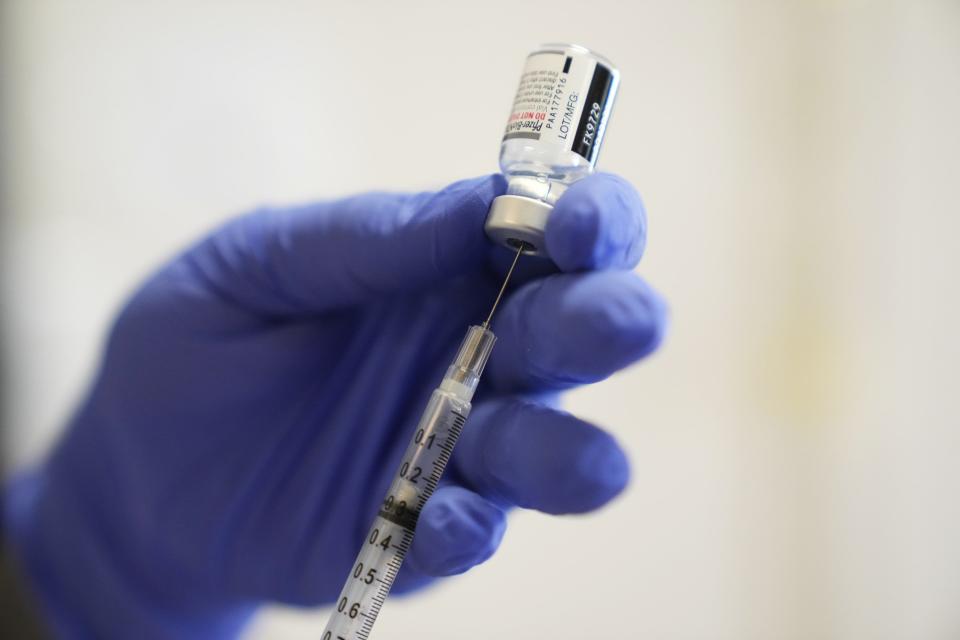$4.1M awarded to help recruit, train public health workers in rural Arizona communities

A training center in Tucson is using new funding to help recruit and retain public health workers in rural areas.
A part of the University of Arizona Mel and Enid Zuckerman College of Public Health, the center was awarded $4.1 million earlier this year by the U.S. Health Resources and Services Administration to continue training and continuing education programs for public health professionals in the western United States and U.S. Pacific Islands.
The Western Region Public Health Training Center will distribute student stipend awards totaling more than $420,000 over the next four years, according to a UA news release. The center provides free training and continuing education for the public health workforce for Arizona, California, Nevada, Hawaii and the U.S. Affiliated Pacific Islands.
A big part of the training center’s focus in Arizona will be increasing outreach to rural areas to fund public health jobs and increase workforce diversity.
Kelly Reynolds, the center’s director, said the COVID-19 pandemic highlighted major gaps in public health especially in rural areas and in under-resourced communities.
Some of those gaps include “staff shortages and health and racial inequities that became very apparent; and the need to focus more intentionally … on workforce diversity,” Reynolds said.
More: University of Arizona medical school in Tucson fails to get full 8-year extension for accreditation
Reynolds noted that more than just staff shortages, there is a lack of workers who are trained to handle “racial inequities and geographical equalities” in areas that are isolated from resources.
The resources include not having basic utilities, running water, reliable phone service and electricity, or being far from a supermarket and being food insecure.
The training center helps the public health workforce — from health departments to emergency response workers — become aware and address these and other issues that exist throughout the state.
Reynolds said many health inequity issues persist throughout rural counties in the state.
One of those issues is diversity in the public health workforce. According to experts, having a diverse public health workforce has shown to improve health outcomes.
Reynolds said the center is focusing on recruiting students from rural areas to serve in their own communities.
“We try to recruit students from these areas of medically underserved or rural regions to take partner training or be placed in the health departments so they can then be available and culturally competent to go serve in those areas where they live,” she said.
These issues became very apparent during the COVID-19 pandemic when people in rural areas without basic services found it difficult to access COVID-19 vaccines.

Reynolds said early in the pandemic, one barrier was language: There was no Spanish translation for the state vaccination registration website.
Another barrier to access was transportation. The vaccine distribution strategy centered on “drive-through points of distribution” which was a problem for people in lower income communities without reliable transportation, she said.
Funding for public health increases across rural southern Arizona
The Southeast Arizona Health Education Center is a community health nonprofit based in Nogales that works with communities on health education, COVID 19 vaccine education, and providing service-learning opportunities focused on health equity in rural, border and indigenous communities.
Brenda Sanchez, a SEAHEC program manager and a masters student in UA’s Public Health program, said the pandemic has put the public health sector in the spotlight.
“For the first time ever, people don’t ask me what public health means when I say I work in public health,” she said, noting that the public saw public health workers in action working on health promotion and prevention to policymaking, epidemiology and environmental health.
Gail Emrick, SEAHEC's executive director, said public health and disease prevention programs and has been historically underfunded.
But now, as the importance of public health and the gaps of an underfunded system become more apparent, Sanchez said there is more funding for the sector.
“Now there is more funding coming into the public health workforce where jobs are more secure in our profession,” she said.
Attraction and retention of public health jobs has been a long-time issue in rural areas.
SEAHEC has addressed that by creating programs in rural communities to inspire and train residents in those communities to work in public health.
This is shown through SEAHEC's community health worker program, which works to train people to promote health education and advocate for their communities.
“They are the trusted members of their communities, Sanchez said. “They are the ones that are best able to advocate for the resources that are needed ... in rural communities.”
A big part of building local workforce development and empowering local youth, motivating students early of the benefits of being in the public health field while helping garner support among their families and the community.
“Many times, our local students don’t consider it because it’s not on their radar screen,” Emrick said. “They don't view themselves as qualified, they don't feel like they have the financial assistance, or the academic preparation.”
Coverage of southern Arizona on azcentral.com and in The Arizona Republic is funded by the nonprofit Report for America in association with The Republic.
Reach the reporter at sarah.lapidus@gannett.com.
This article originally appeared on Arizona Republic: $4.1M awarded to help recruit public health workers in rural Arizona

